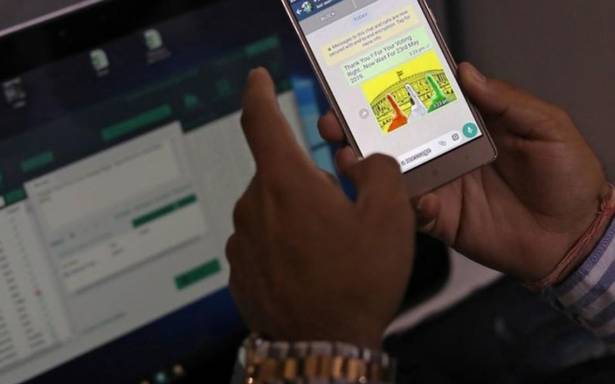New Delhi/Mumbai: WhatsApp clones and software tools that cost $14 are helping Indian digital marketers and political activists bypass anti-spam restrictions set up by the world’s most popular messaging app.
The activities highlight the challenges WhatsApp, which is owned by Facebook Inc, faces in preventing abuse in India, its biggest market with 200 million users.
With fervent campaigning in India’s staggered general election, which concludes May 19, the demand for such tools has surged, according to digital companies and sources in Bharatiya Janata Party and its rival the Congress party.
After false messages on WhatsApp last year sparked mob lynchings in India, the company restricted forwarding of a message to only five users. The software tools appear to overcome those restrictions, allowing users to reach thousands of people at once.
Congress social media chief Divya Spandana and the BJP’s IT head Amit Malviya did not respond to requests for comment. Rohitash Repswal, who owns a digital marketing business in a cramped, residential neighbourhood of New Delhi, said he ran a `1,000 ($14) piece of software round-the-clock in recent months to send up to 100,000 WhatsApp messages a day for two BJP members.
“Whatever WhatsApp does, there’s a workaround,” Repswal said during an interview at his two-bedroom house. Reuters found WhatsApp was misused in three ways in India for political campaigning: free clone apps available online were used by some BJP and Congress workers to manually forward messages on a mass basis; software tools which allow users to automate delivery of WhatsApp messages; and some firms offering political workers the chance to go onto a website and send bulk WhatsApp messages from anonymous numbers.
At least three software tools were available on Amazon.com’s India website. When purchased by a Reuters reporter, they arrived as compact discs tucked inside thin cardboard casings, with no company branding.
CLONED APPS
Modified versions of popular apps have become common as technically-savvy hobbyists have long reverse-engineered them. Tools purporting to bypass WhatsApp curbs are advertised in videos and online forums aimed at users in Indonesia and Nigeria, both of which held elections this year. For Indian politicians, WhatsApp, Facebook and Twitter are key campaigning tools to target the country’s near 900 million voters. Two Congress sources and one BJP source told Reuters their workers used clone apps such as “GBWhatsApp” and “JTWhatsApp”, which allowed them to cut through WhatsApp’s restrictions. Both apps have a green-colour interface that closely resembles WhatsApp and can be downloaded for free from dozens of technology blogs. They are not available on Google’s official app store but work on Android phones. WhatsApp describes such apps as “unofficial” and says its users can face bans, which means the company can block the account associated with a particular mobile number if it detects unusual activity.
